Musings on life and feeling good while living in an interconnected and deeply unfair world.
I spent an incredibly peaceful morning writing at an outdoor cafe on the banks of the River Tisa in rural Serbia. It was sunny and still, and the whole world seemed to have slowed: the lazy breeze, the river flowing past so slowly that the trees on the opposite bank formed almost perfect reflections on the glassy surface, the pollen drifting on the wind and settling on the water. It seemed impossible for anything bad to be happening in such a perfectly peaceful world.
And yet these same lazy, pollen-strewn waters sprang from the ground and started flowing in Ukraine. Travel a few hundred miles upstream, and you’re in a warzone. The Tisa’s source is in the Carpathian mountains in western Ukraine, so it’s not like you could sail straight to the Donbas or anything, but still, it’s a country that’s under attack, a place in which people were probably dying as I was sipping my espresso sa mlekom.
Still, I found it hard to connect with that fact. I ate my omelette, sipped my coffee, talked to the waiter in my bad Serbian, and then pulled out my laptop and began to work on my novel. It was a normal, peaceful morning. I felt completely happy.
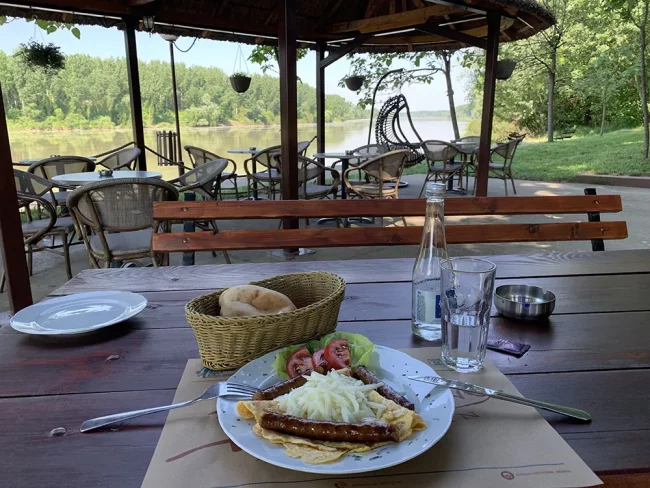
This is how we live, isn’t it? Bad things are happening to people near and far, and bad things are happening to the planet itself, but we live our lives because what else can we do? Compared to issues as large as war, injustice and climate change, our lives feel as small as those wisps of pollen floating on the breeze. Making a meaningful change feels as impossible as diverting the course of the river that was flowing past me this morning and is now in the Danube, on its way out to the Black Sea.
At some point, however, we will have to find a way. We will have to because the boundaries we set up between ourselves and others are illusory. Nature knows nothing of them: the same drops of water that flowed past me this morning may be falling as raindrops on your window as you read this somewhere thousands of miles away. If nature is being despoiled somewhere, the effects will be felt everywhere. That’s why scientists have found toxins, pollution and plastics everywhere from the deepest ocean trenches to the highest mountains to the Antarctic and of course the tissues of our own bodies. And of course, even if climate change will disproportionately affect those who have done the least to create it, it will come for us all in the end.
But it’s not just nature that’s interconnected. It’s us. For a long time, those of us with relative privilege managed to preserve the illusion that we could remain forever insulated from the suffering we saw on the nightly news. That illusion is coming apart at the seams. We have seen so many examples of “blowback” from previous acts of violence, often decades or centuries earlier but remaining rightly unforgotten. We have seen the enormous human cost of trying to preserve islands of privilege in a grossly unequal world. We have lived through a pandemic that reached from a Chinese wet market to kill an estimated 15 million people around the world so far.
I could go on. The solutions to the issues I’ve mentioned (and to the countless ones I haven’t) are not simple, and I’m not going to pretend they are. My point is simply that any solution based on exclusion and division will not work. At best, it will shift the problem somewhere else or temporarily delay the worst consequences.
The solutions we should be reaching for are those based not on expedience but justice. They will probably be harder solutions, more complicated solutions, because the world we live in is infinitely complex. But they have a chance of working. Instead of demanding a short-term fix that gives us a temporary advantage at the expense of other people or of nature, for example, we should ask how we can be better ancestors for the world to come. We need to be idealistic, perhaps even unrealistic, because we can all see that so-called realism and pragmatism aren’t working out too well for the majority of people on this planet. They’re often simply a cover for prolonging an unjust status quo.
The uncomfortable bottom line is that people like me have got used to living on credit. We’ve been overspending on the planetary credit card for generations and dumping the negative balance on the backs of the global poor and on the ecosystems we inhabit. This unsustainable mode of living has blunted the lives of billions of people and brought us to the brink of civilisational collapse.
Our response? We order another coffee. Chat with the waiter, try to tell a joke. Watch the river flow lazily past, track the wake of a fishing boat rippling across the surface. Feel content that nothing bad is happening, that nothing really needs to change. Because everything, for now, is good. Everything, for now, is perfect. The suffering is taking place somewhere upriver, beyond the line of trees on the horizon. It doesn’t affect us. We stop even looking in that direction. What’s the point?
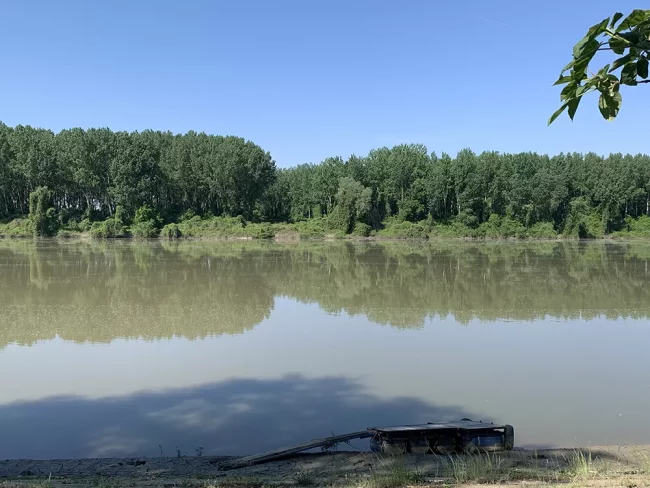
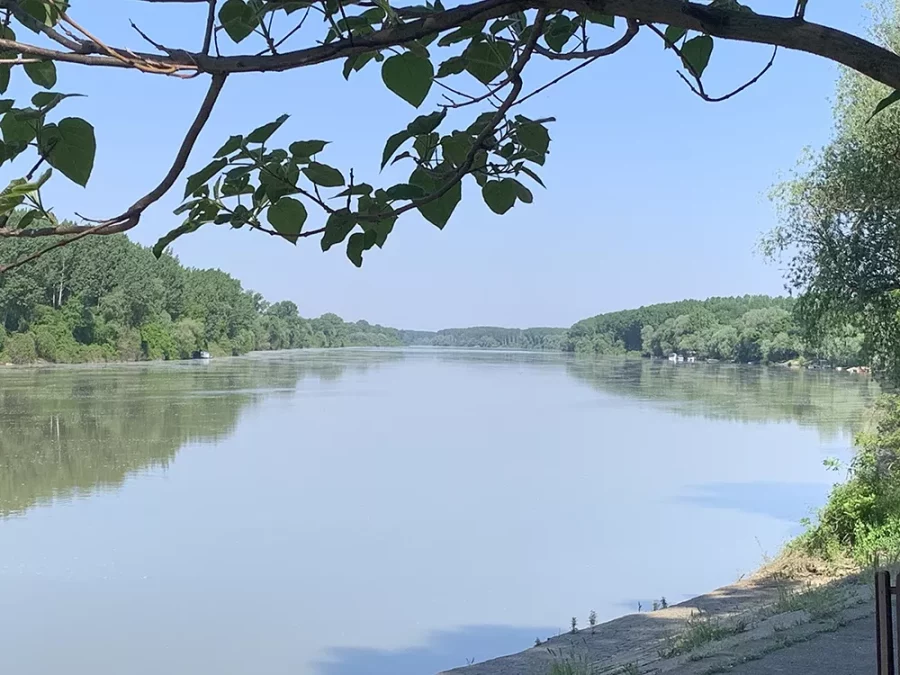
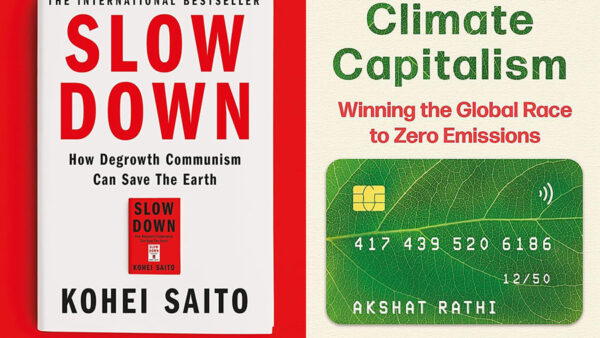
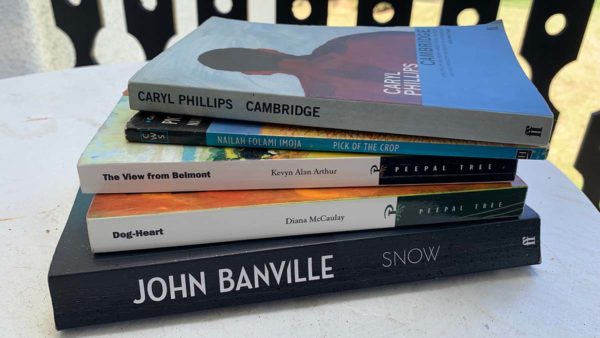
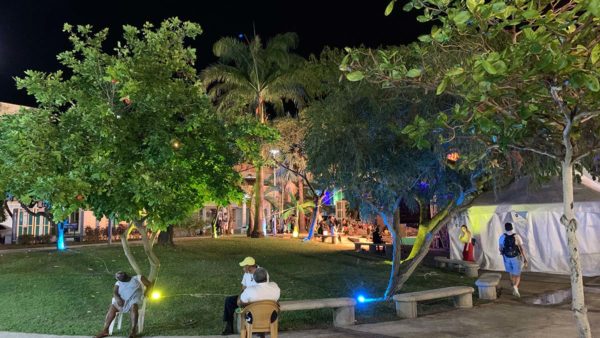
There are 10 comments
Hello Andrew, thank you for your text! I enjoyed reading you but can’t help wondering how you feel so calm being so near this horrible war… There’s not much we can do, I know, but the suffering caused by humans is unbearable. Nature is not enough solace for me. Life goes on, but it will never be the same. No-one can fix the World.
Hi Isolete, Good to hear from you too! I’m with you – I find the suffering unbearable and heart-breaking too. What I was trying to capture in this post was how easy it is to forget about it in the moment and still feel good, even while others are suffering so close by. I was really struck by how happy I was that morning, and how little I thought about the people upriver. I think it’s this capacity to forget and get absorbed in the moment that allows a lot of terrible things to go on. But perhaps it also enables us to survive.
Thanks for this billet. It echoes what I was saying to my husband yesterday evening. The world is riding a fast car into a wall, we’re all on board and we keep watching the landscape.
There is no other choice than a global solution but how can we do it?
Romain Gary (yes, him again!) wrote something like “They say we need to get together and change the world. But if we get together, we won’t need to change the world anymore, it will already be totally different.” Smart man.
Maybe you’re ready to read The Roots of Heaven and his thoughts about ecology. Dating back to 1956. Like I said, smart man. 🙂
Hi Emma, Thanks for the comment, and sorry I’m slow responding. I agree about that fast car. My usual analogy is a cliff, but a wall will do too. Have you seen the movie Don’t Look Up? It’s an interesting analogy of the current moment – scientists warn about a meteor colliding with Earth, but instead of the usual disaster movie plot, something else happens: they get totally ignored.
I’ll check out The Roots of Heaven – thanks! There doesn’t seem to be an ebook available, and ordering physical copies here in Serbia is difficult because of unpredictable customs charges, but I’ll try to get hold of one.
I don’t really know how the shift to a global consciousness will happen either, but what gives me hope is looking at all the times in history when change seemed impossible and then happened all at once.
Loved reading your thoughts. It’s easy to order another cup of coffee when we ourselves don’t feel like we are in danger. Humans are like that. What really gets me though is how surprised everyone is when the danger finally appears on their doorstep in one form or another–how could this happen?!?
You are right about justice v short-term fixes. Sadly those with power and money only seem interested in short term fixes that help them keep their power and money. Meanwhile, there are lots of us working in our communities to make them better places, doing good work, and trying to get others to skip the second cup of coffee and help with the work. I am not immune to that second cup, especially if I were sitting in such a lovely cafe as your photo. But we keep trying, keep resisting the dominant strand of culture and media that says everything is fine, keep finding ways to help both large and small. It is all we can do I think. And even if none of it is enough to avert disaster, at least we tried, and at least we helped, and at least we lived according to our values.
Beautiful comment, Stefanie! Yep, the surprise is amazing, isn’t it? I read something recently about the first time a US President was warned about the danger of global warming – it was LBJ! And the warnings have been getting louder and louder, and yet when we pass the point of no return, everyone will be so surprised.
You’re right about the importance of resisting and doing the work and living your values. I try to do that too, although I never seem to do enough of it for my liking. There’s a passage by Orwell that really got to me when I first read it as a teenager: “Under the capitalist system, in order that England may live in comparative comfort, a hundred million Indians must live on the verge of starvation–an evil state of affairs, but you acquiesce in it every time you step into a taxi or eat a plate of strawberries and cream. The alternative is to throw the Empire overboard and reduce England to a cold and unimportant little island where we should all have to work very hard and live mainly on herrings and potatoes. That is the very last thing that any left-winger wants. Yet the left-winger continues to feel that he has no moral responsibility for imperialism. He is perfectly ready to accept the products of Empire and to save his soul by sneering at the people who hold the Empire together.” I knew even back then that although the Empire is gone, things aren’t so different today. I’ve been struggling to find a way not to acquiesce in it ever since, and I’m still not sure I’ve come up with a solution that satisfies me.
That’s a powerful Orwell quote! Have you read Ursula Le Guin’s short story “The Ones Who Walk Away from Omelas”? She presents this beautiful utopia that is predicated on the miserable life of one child living locked up in a dingy dungeon/closet. Everyone knows it, everyone has seen the child. And when you know what your happiness and comfort is based on, you have a choice–you can be one of those who walk away from that “utopia,” or you can find a justification to stay. If you haven’t read it, you can find it in Le Guin’s story collection called The Wind’s Twelve Quarters.
Of course when the entire world is based on a system that requires lots of people to live horrible lives, where do we walk away to? And since we can’t walk away, what do we do to change the system? How do we keep resisting a culture that asks us, encourages us, to forget about the child in the dark closet or those million Indians on the verge of starvation? I think part of the resistance is telling stories that help us “walk away.”
I haven’t read that one, Stefanie, but thanks for the recommendation! I loved The Dispossessed and had been meaning to read something else by Ursula Le Guin, so I’ll look for that collection.
I love that image of “the ones that walk away”. I think we can walk away, metaphorically at least, and that’s a vital first step: to reject things the way they are, to refuse to accept the unacceptable. Then those of us who’ve walked away need to find each other and come up with a better way to live. That’s the harder part, of course, but when I look at the history of people fighting back and overcoming injustice in so many forms, it gives me hope that we can pull it off.
Dear Andrew,
Thanks for your poignant post. All of it resonates.
I got connected to here through your newsletter.
In response to Stefanie’s comment, I thought I share a post from my website, from some time back …
https://courseofmirrors.com/2015/02/12/the-ones-who-walk-away/
There is also a link to Ursula McGuin’s story.
Thanks Ashen! Really good to hear from you. I’ll have a read of your post later – it looks excellent! The link to the story no longer works, but I ordered that collection Stefanie mentioned, so I’ll read the story that way.